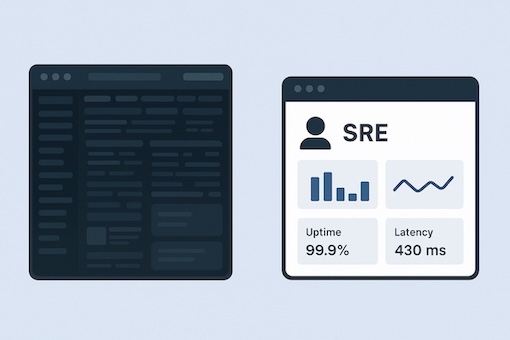Latest blog posts
DevOps resources tips and best practices
When it comes to scaling up, time is everything, and it feels like there’s never enough. Implementing a solid culture of experimentation can deliver the right balance between speed and standardization needed to optimize growth. Our latest guest on Level-Up is Daniel Gebler, the Founder & CTO at Picnic. He discusses how he built a culture of experimentation that enabled him to scale Picnic from an idea to over 3,000 employees and how the culture continues to drive growth by optimizing the developer experience.

When it comes to scaling up, time is everything, and it feels like there’s never enough. Implementing a solid culture of experimentation can deliver the right balance between speed and standardization needed to optimize growth.
Our latest guest on Level-Up is Daniel Gebler, the Founder & CTO at Picnic. He discusses how he built a culture of experimentation that enabled him to scale Picnic from an idea to over 3,000 employees and how the culture continues to drive growth by optimizing the developer experience.
Join us as we discuss:
Creating the lowest-effort solution is just as much a mistake as making an over-engineered solution when building to scale. On the one hand, your solution may not be adequate to withstand iterations. On the other hand, the solution may be over-complicated and still fail to address the intended problem.
According to Daniel, the best way to create scalable solutions while still prioritizing continuous improvement is to focus on experimentation.
To create the best possible solution, it’s important to run as many possible experiments to understand what a new feature set and package should look like. Experiments will also help reveal where you previously have fallen short of creating a truly scalable solution.
“The main driver of your future success will be how many experiments you can run in a short time,” Daniel says. “The exponential power of incrementally improving, step by step, every week with a new prototype and experiment, will yield fantastic results.”
While a culture of experimentation offers endless possibilities and benefits for improvement and development, it also promises one thing above any other — change. And this change moves quickly.
How can you optimize your workplace culture to reap the benefits of experimentation without the pitfalls of whiplash from constant change?
Daniel says this optimization is rooted in initial prototypes and the first stages of development.
“When we consider how to design software, we look into the overall system architecture,” Daniel says. “We consider how we can optimize for the least possible effort for the first 10, 15, 20 versions of the specific features.”
Instead of focusing on how quickly they can develop the first version, Daniel’s team considers the ease with which the initial version can be changed, merged and adapted to create subsequent versions. While this often requires significantly more time invested into version one, it offers greater flexibility for each iteration, decreasing the time and effort required to implement change.
Picnic has empowered customers and developers by providing clearly defined domains and platforms built for ease of use and accessibility. For example, all supply chain products are grouped to form a domain; all consumer products and data-solution products also form their own domain.
Then, domains and products are grouped to form platforms, like Picnic’s Foundation Platform, where everything they offer is bundled.
Picnic has fueled continuous growth using this platform system by enabling developers with an easily accessible and navigable experience platform.
“We bundle together all the tools that help developers deploy new requests into production as fast as possible,” Daniel says. “And we measure the effectiveness of our developer platform, based on two metrics: how fast a new joiner develops and deploys their first pull request and how productive and mature a role each engineer plays.”
This developer experience platform enables engineers to be productive by providing them with all the necessary tools. It also allows the organization to analyze how satisfied and effective each developer is, ultimately fueling further experimentation by improving experiences.
“Without measurement of time management and engagement, there is no way to understand how you can improve it,” says Daniel. “You need to start with a structured way to track and measure it for self-reflection, too.”
To learn more about Daniel, hear his insights, personal experiences and more, you can follow him on Twitter.
Want to learn more about scaling through hypergrowth, building a great product and business with a culture of experimentation and continuous growth? Listen to the latest episode of Level-Up on Spotify, Apple Music or wherever you find your podcasts.

Kenneth (Ken) Rose is the CTO and Co-Founder of OpsLevel. Ken has spent over 15 years scaling engineering teams as an early engineer at PagerDuty and Shopify. Having in-the-trenches experience has allowed Ken a unique perspective on how some of the best teams are built and scaled and lends this viewpoint to building products for OpsLevel, a service ownership platform built to turn chaos into consistency for engineering leaders.
Conversations with technical leaders delivered right to your inbox.
DevOps resources tips and best practices
.png)
.png)

